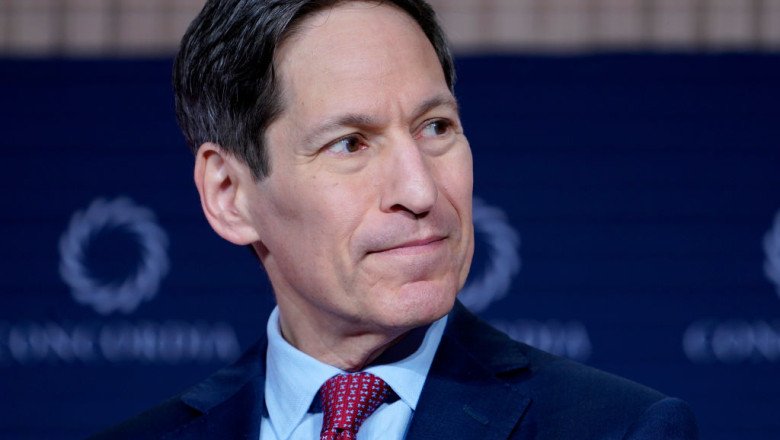
views
The unprecedented firing of the entire Advisory Committee on Immunization Practices (ACIP) by Secretary Robert F. Kennedy Jr. poses a direct threat to American health. Far from restoring trust—Kennedy’s stated aim—this action dismantles a process that was a model for the world, built over six decades, and will create confusion for doctors, increase costs for families, and trigger preventable outbreaks.
I worked closely with ACIP during my nearly eight years as CDC Director. The committee is composed of pediatricians, epidemiologists, public health specialists, and parents who all volunteer their time. They provide transparent, fact-based vaccine guidance that is trusted by physicians and families across America and worldwide. Their meetings are open, streamed online, and include dedicated public comment time. All presentations and data used for decisions are posted on the CDC website. Members disclose potential conflicts of interest and recuse themselves whenever needed. This careful transparency is why ACIP recommendations carry such weight.
Advertisement
Advertisement
The ACIP’s record is a quiet triumph of public health. Its guidance helped eliminate measles in the United States in 2000—a milestone now at risk. It led to widespread use of the HPV vaccine, which prevents cervical and other cancers. Its recommendations have helped dramatically reduce hospitalizations and deaths from pneumonia and meningitis. Childhood vaccination protects millions from diseases that once killed or disabled large numbers of children. For more than 60 years, it has quietly translated science into action, saving lives and strengthening health systems.
Kennedy justifies his extreme action by alleging conflicts of interest, misrepresenting outdated data from a 2007 report. Today’s reality contradicts his claims: of the 17 voting ACIP members, only one reported any potential conflict—a highly respected pediatric infectious disease specialist who appropriately recused herself from related vaccine discussions.
Advertisement
Kennedy claims ACIP "has never recommended against a vaccine—even those later withdrawn for safety reasons." This is false and misrepresents ACIP's role. By the time vaccines reach ACIP for deliberation, they've already been approved, having been deemed safe and effective by the FDA, generally after years of rigorous safety and efficacy studies. ACIP's job is to determine optimal use—and they have repeatedly demonstrated independence. As just a few examples, ACIP withdrew its recommendation for the RotaShield vaccine in 1999 when a problem was identified, recommended against continued use of the nasal influenza vaccine in 2016-17 due to reduced effectiveness, restricted recommendations for the Johnson & Johnson COVID vaccine in 2021, and just last year reduced the groups for which it recommended vaccination with the new RSV vaccine out of caution regarding possible safety concerns.
Advertisement
By undermining the ACIP, Kennedy endangers Americans’ health. ACIP’s recommendations determine coverage under the Vaccines for Children (VFC) program, which provides vaccines at no cost for half of all children in America. Without these recommendations, millions of children risk losing access to life-saving immunizations. Families could face hundreds of dollars in out-of-pocket costs for each vaccine, potentially decreasing vaccination rates and leading directly to more preventable illnesses and deaths. Moreover, if vaccine recommendations are weakened, accessing vaccines could become harder. Pharmacists might lose the authority to prescribe or administer them unless explicitly allowed by their state’s protocols or scope-of-practice rules. Pediatricians may hesitate to stock vaccines in their offices, as they are not reimbursed for unused doses.
The economic costs will be substantial. Vaccine-preventable diseases create medical expenses and decrease productivity when parents miss work to care for sick children. Preventable outbreaks impose significant costs on the healthcare system.
Advertisement
Kennedy’s decision also weakens our ability to respond to health emergencies. Kennedy’s unprecedented action leaves a dangerous gap in our emergency response infrastructure. ACIP plays a critical role prioritizing vaccine distribution during outbreaks and pandemics. From H1N1 to mpox, its expert judgment has helped protect those most at risk. Already, we’re experiencing the most measles cases in nearly 30 years, and whooping cough is resurgent. Undermining ACIP isn’t just misguided—it’s dangerous.
Will new appointees be qualified specialists who understand the technical nuances of vaccine research or conspiracy theorists? Without trusted, fact-based guidance, misinformation spreads—and more people suffer and die from preventable disease. Pediatricians and family physicians who have relied on ACIP's clear guidance for patient care now face uncertainty about which vaccines to recommend. How can any doctor or patient trust the recommendations of people appointed by someone who has repeatedly made false statements about vaccines and about the committee doctors have depended on for decades?
Advertisement
Secretary Kennedy says he wants to restore the reputation America’s health regulators had in the 1960s. That reputation was built on rigorous science, not political interference. If Kennedy truly wants to restore trust, he should let scientists do science—and let ACIP do its vital work protecting American families. The actions taken last week don’t restore trust; they destroy a carefully built, globally respected process that has provided essential guidance for doctors and patients. The consequences will be deadly, expensive, and entirely preventable.
https://time.com/7294477/former-cdc-rfk-wrong-vaccines/

























Comments
0 comment